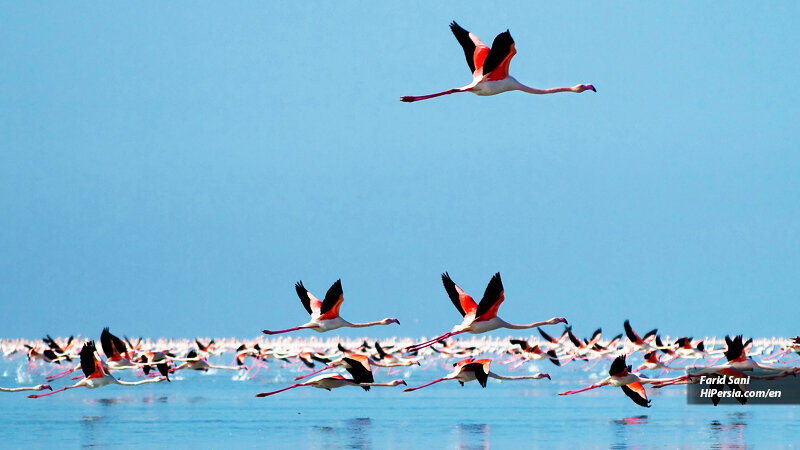Ominous shadow of hunting on Iran’s birdwatching paradise

TEHRAN – Miankaleh International Wetland is known as the birdwatching paradise of Iran, but for several years now, uncontrolled hunting has caused serious damage to the region's environment.
According to estimates by the Department of Environment (DOE), about 1,800 tons of lead from hunters’ bullets have entered Miankaleh Wetland over the past 30 years.
Annually, about 5,600 kg of lead flows in Gorgan Bay and Miankaleh wetland, which has very dangerous effects on the inhabitants of the water basin.
According to estimates by the Department of Environment, about 1,800 tons of lead from hunters’ bullets have entered Miankaleh Wetland over the past 30 years. Lead is a very dangerous chemical that can cause deadly damage to animals, plants, and humans throughout the food chain. Young children are particularly vulnerable to the toxic effects of lead and can suffer profound and permanent adverse health effects, particularly affecting the development of the brain and nervous system.
Lead also causes long-term harm in adults, including increased risk of high blood pressure and kidney damage. Exposure of pregnant women to high levels of lead can cause miscarriage, stillbirth, premature birth, and low birth weight.
Miankaleh a long and narrow peninsula is 48 kilometers long, and between 1.3 and 3.2 kilometers wide, which sets apart the Gorgan Bay from the Caspian Sea. Four villages namely Ashuradeh, Qezel-e shomali, Qezel-Mehdi, and Qavasatl are situated on the peninsula.
The peninsula was designated a Ramsar site in 1975 and called Iran's bird-watching paradise. Major habitats include wetlands, inter-tidal mud with sandy shores, shallow marine waters, forests, peatlands, and agricultural areas. It is home to many unique Caspian birds and reptile species native to this region. It's also a very important internationally-recognized refuge for migratory birds.
Water deficit, mismanagement, unsustainable agricultural practices, and severe depletion of the wells and groundwater resources have exacerbated Miankaleh peninsula’s condition.
Overgrazing, illegal hunting, fishing, deforestation, and the unplanned spread of villages are some of the challenges posing threat to the region’s environment.
FB/MG
